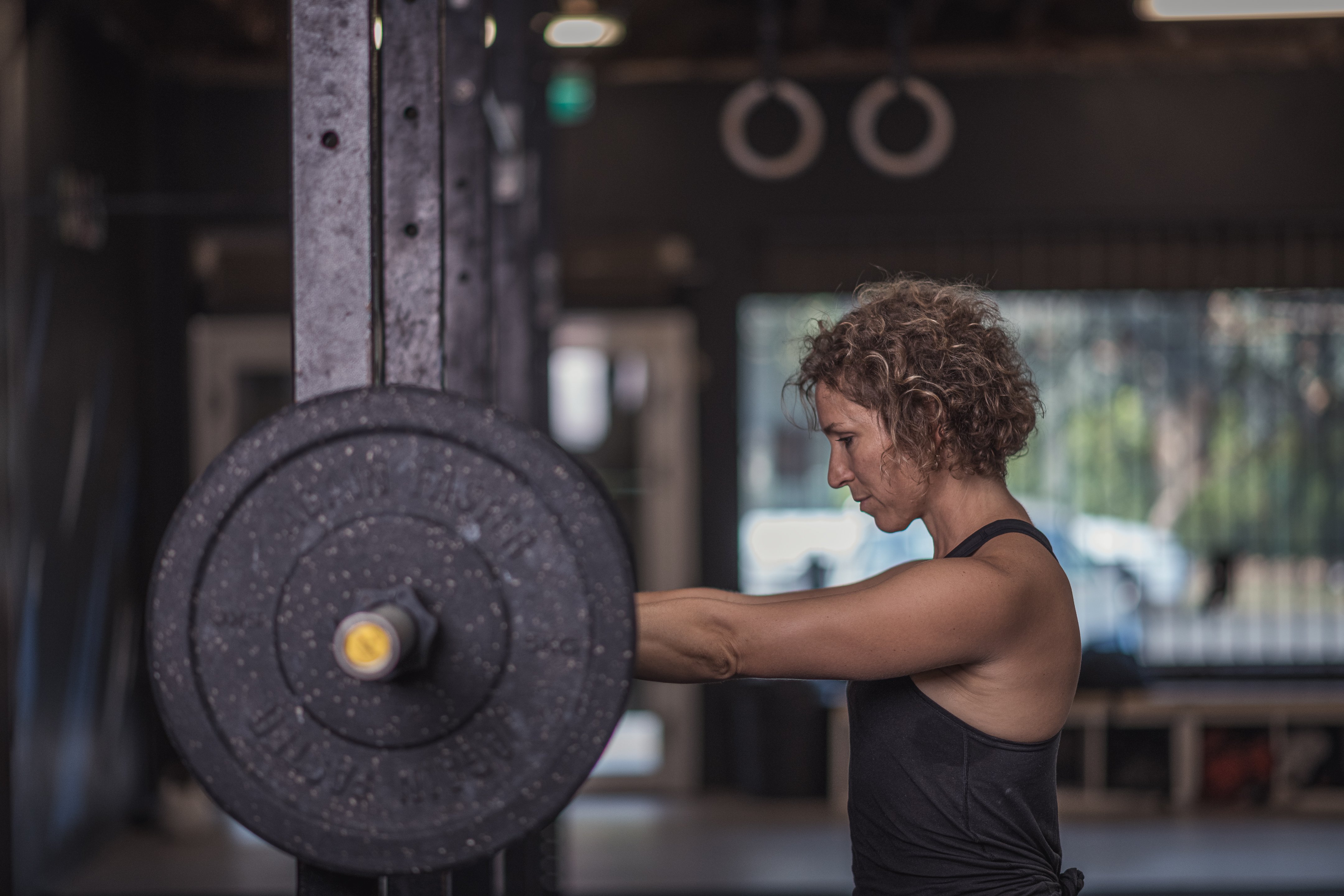How do symptomatic periods affect training?
Understand how the menstrual cycle impacts perceived performance in training, why symptoms matter more than hormone levels, and how to adapt your workouts around your cycle.

When women tell me they’ve “lost their mojo,” they’re often describing something more than just libido. Mojo is about vitality, connection and feeling like yourself in your body. In perimenopause, that feeling can shift. Not because anything is wrong, but because your physiology is changing, and your relationship to yourself is changing with it.
If your energy is lower, your desire is unpredictable and your body feels unfamiliar, you’re not alone. These are common experiences during perimenopause, but they’re rarely talked about in any meaningful way.
This article offers a practical, clinical lens on what's happening and how to start reclaiming a sense of connection with your body, your pleasure and your self.
Perimenopause is an embodied process. That means you’re not just experiencing hormonal shifts, you’re living them. It might show up as fatigue, disrupted sleep, vaginal dryness, pain with sex, changes in libido or a general feeling that something is “off.”
Instead of pathologising it or pushing through, the first step is to pay attention. These changes are information. If you slow down and listen, they’ll tell you what needs support.
Many women reach midlife with a blueprint of pleasure shaped by external expectations: what looks good, what pleases others, what “should” be arousing. But perimenopause invites a different kind of exploration.
Pleasure can still be part of your life, but it might need a new starting point. What feels good now? What textures, rhythms or types of touch do you respond to? This is where non-goal-oriented intimacy, self-pleasure and sensual exploration can be powerful tools, not as a means to an end, but as a way of coming home to your own body on your own terms.
This question is simple, but powerful and I encourage you to ask you to continue asking yourself it.
Too many women override their bodies’ needs in the name of discipline or resilience. But if your nervous system is dysregulated, if your libido is flat or if your stress levels are sky-high, the answer might be rest, softness or stillness, not more effort.
This isn't indulgent. It’s essential.
Fluctuating oestrogen and progesterone levels affect more than just your reproductive system, they impact your brain chemistry, your stress tolerance and your emotional regulation.
Mood swings, anxiety and irritability are often nervous system symptoms. That means they’re physiological, not personal. Breathwork, grounding exercises, co-regulation with a safe partner or simply slowing your pace can all help stabilise your internal state.
If you’re constantly feeling on edge, consider this a clinical sign to prioritise nervous system support — not something to dismiss or tough out.
Desire doesn’t disappear in perimenopause, but it can become less spontaneous or more dependent on the context. The old script of instant arousal may no longer apply, and that’s not a problem, it’s simply a shift.
Take time to notice what helps you feel connected to yourself. This could be moments of calm, comforting touch, or simply tuning into sensation without pressure or expectation.
Intimacy may look different now, slower, more intentional, more grounded in how you actually feel. This can be a valuable opportunity to rediscover what genuinely feels good in your body and on your terms.
Mojo might no longer mean high sex drive or spontaneous arousal. It might mean feeling emotionally present during intimacy. It might mean feeling powerful in a slower, steadier way. It might mean allowing desire to be contextual, rather than constant.
None of this is a downgrade. It’s simply a shift, and when you meet it with curiosity instead of criticism, you create space for genuine connection and agency.
This part doesn’t get talked about enough.
There’s often grief in this season, for who you were, for a body that felt more predictable, for an identity that no longer fits.
Anger is common too. About lack of education, poor medical support or simply the fact that no one prepared you for this. These emotions are not a sign of failure, they’re an appropriate response to change.
Therapy, journalling or simply naming what’s there can be a powerful way to give these feelings space, rather than suppressing them.
Reconnection isn’t a one-off event. It’s a daily practice. It might look like:
If you’re in a relationship, talk to your partner. That doesn’t mean having all the answers. It means being honest about what’s changing, what’s not working and what you need more of (or less of).
Clear communication creates space for co-regulation, collaborative intimacy and shared adaptation. That’s where real connection lives — not in maintaining the status quo.
You don’t have to figure this out alone.
Psychosexual therapists, pelvic health specialists, menopause-informed clinicians and body-based practitioners can all offer support that’s grounded, non-judgemental and clinically sound.
You’re not losing your mojo, you’re learning a new one. And that’s allowed to feel unfamiliar, a bit messy and absolutely full of potential.
This isn’t the end of you. It’s a new beginning, one that’s rooted in truth, connection and a version of pleasure that’s entirely your own.

Elinor's a qualified Relationship and Psychosexual Therapist, the result of 9 years of training. Elinor works with both couples and individuals using an integrative model to tailor the sessions to your unique needs. She is particularly passionate about helping women get their spark back.
She is an Accredited Member of NCPS (The National Counselling and Psychotherapy Society) an Accredited Member of COSRT (The College of Sexual and Relationship Therapists) and a Resolution Associate Member.
You can book a 1-to-1 therapy/psychology session with Elinor here, or visit her website www.relationshiptherapypractice.com.
@that.relationship.therapist
Understand how the menstrual cycle impacts perceived performance in training, why symptoms matter more than hormone levels, and how to adapt your workouts around your cycle.
Kat, Hatch Founder & Women's Health Physio
9 min read
Founder and physio/coach Kat leads your performance coaching and business modules for HATCH COACH. In this 7 minute read, she dives into how perinatal coaches can fill the gap in those early 0-6 weeks after their client has given birth, with practical tools and strategies you can use to support your clients in the first six weeks postpartum whilst sustaining your coaching business.
Kat, Hatch Founder & Women's Health Physio
4 min read
Regardless of your symptoms, here are a few exercise tips to keep you feeling great in the final stretch.
Kat, Hatch Founder & Women's Health Physio
8 min read
How long do you wait? How do you prepare to return to running? What does the road back to running look like for you?
